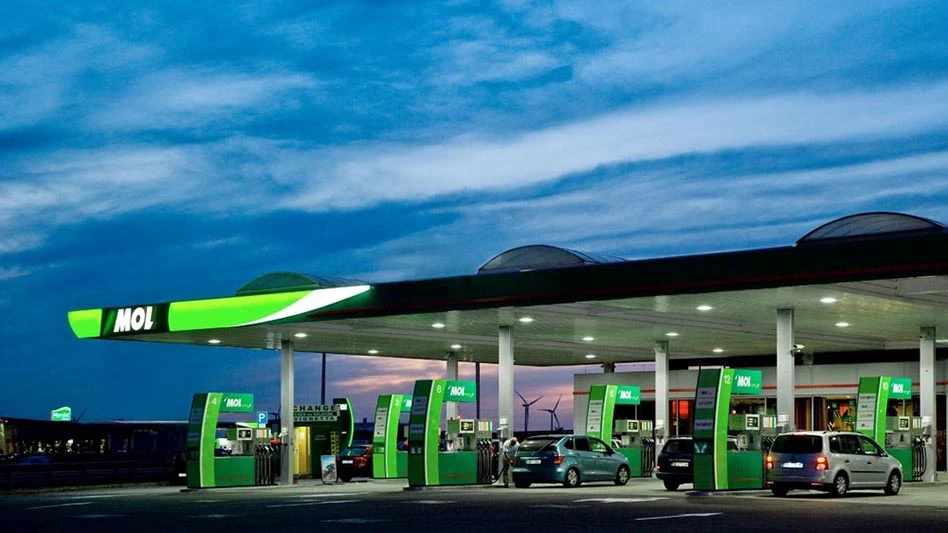
Photo courtesy of MOL Group
The Budapest-based MOL Group, which was awarded a Hungarian state concession tender covering municipal waste management services last July, says it is centralizing residential and commercial waste and recycling activities currently carried out by 26 different municipal service providers.
MOL says its new system will address the country’s "fragmented" waste strategy in part by centralizing services currently carried out by the 26 public municipal waste management service providers. Those efforts are financed via the National Waste Management Coordinating and Asset Management.
The conglomerate, which also has a presence in the oil, gas, petrochemicals and consumer retail sectors, says the current system needed reform to meet public expectations and EU regulations.
The national agreement covers 35 years and started July 1. According to the agreement, via a newly established concession company, it will be responsible for the collection, pretreatment and management of about 5 million tons of residential and institutional, corporate, mixed and separated waste each year.
MOL Group indicates waste-to-energy technology will play a key role in its approach, though it also says intends to improve the management of waste and its recycling.
“However, because of the restructuring and investment required, it is expected to take at least five years for the new system to affect positively," the company adds.
Once established, MOL says its new waste management system will be a fully integrated and transparent method that aligns the country with the ambitions of the European Union.
The 100 percent MOL-owned waste management concession company will contract with facility operators, subcontractors or directly with company owners.
The firm will establish the framework for the system with existing stakeholders, an approach MOL says it will maintain “if it functions effectively.’
“It has long been recognized that Hungary’s current waste management system is not efficiently run," MOL says. "There is low coverage of waste transfer stations, with the utilization currently around 50 percent. The facilities are presently oversized and, on average, only operate at 40 percent capacity. Regarding waste collection, the vehicle fleet optimization is suboptimal, with only about 60 percent capacity used. The plan is to develop a system that can sort and process waste better and faster in better facilities, which is also an advantage from an environmental and economic point of view.”
As part of its contract, MOL will be responsible for developing extended producer responsibility systems in Hungary.
“Currently, Hungary sends 51 percent of its waste to landfill, with 14 percent being converted to energy via waste-to-energy facilities and 32 percent recycled or composted,” MOL says, estimating it will invest more than $1.15 billion in the first 10 years of the contract, including by building a waste-to-energy facility capable of handling at least 100,000 tons of municipal solid waste (MSW) annually.
Progress in Hungary would be welcome in Brussels. The European Commission recently listed Hungary as among 18 EU nations in danger of not meeting looming recycling and waste diversion targets.
MOL says it also will invest to increase the efficiency of recycling and waste sorting, which means the development of technological solutions that enable the extraction of even more valuable materials from waste. That includes investing in sorting plant and also improving collection methods and adding collection points.
“Other innovative options, such as the automated redemption system for beverage packaging, are also being implemented,” MOL says.
The company's goal is to meet the EU’s 65 percent recycling target for MSW by 2035, which will entail reducing the amount of landfilled waste by 40 percent. “These objectives can be met in the next 15 years based on Western European examples,” the firm says.
The company points to targeting streams including packaging, electronic scrap, batteries and polyethylene terephthalate bottles as priorities.
Latest from Waste Today
- Closed Loop Partners acquires organic waste management company
- LanzaTech revenue declines as it refocuses on carbon capture
- Bandit ties giveaway to 100,000th machine
- Fayetteville, Arkansas, extends curbside composting pilot
- Synagro releases 2024 sustainability report
- American AF Dumpsters acquires Live Oak Dumpsters
- Landfill Insights | Safe spacing for heavy equipment at the landfill
- Viridor reportedly up for sale





